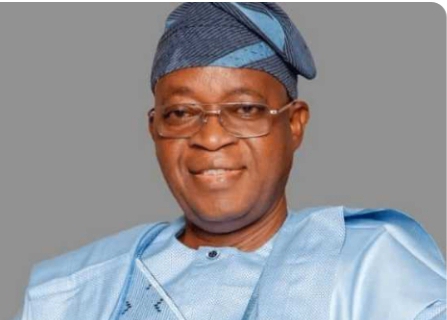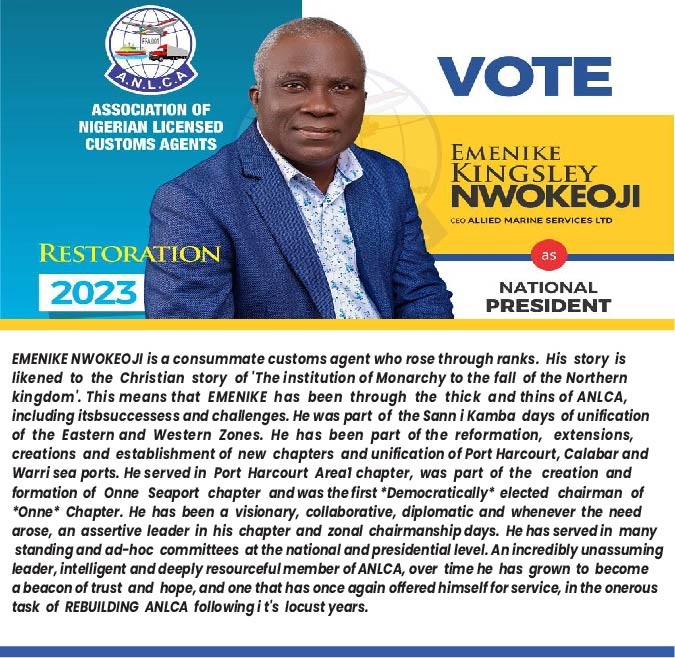Nigeria may never know why former President Muhammadu Buhari twice refused to assent to the proposed National Transport Commission (NTC) during his eight years rule.
Earlier, efforts to also get the bill passed under successive administrations including that of President Umar Yar’adua and Goodluck Jonathan from 2007 to 2015 were all abortive. In fact in the last dispensation, the National Assembly passed the bill twice but President Buhari withheld assent on both occasions; citing various objections.
Buhari in his letter of rejection of assent to the NTC bill to the National Assembly in December 2018 listed the following observations;
“Safety regulatory provisions enshrined in some sections of the bill which are technical in nature fall within the purview of central legislation implemented by agencies like Nigeria Maritime Administration and Safety Agency (NIMASA), NPA (Nigeria Ports Authority) and therefore should be expunged from the bill.
“Two, the percentage of the amount to be retained by the agency from royalties collected under section 19 (2)(d) should be reduced from 10 to 5percent. Section 12 (9)(2)(d) stipulates that a portion of the proceeds from royalties collected by the authority empowered to collect royalties from transport service providers should not exceed 10 per cent which is collected by service providers and concessionaires.
“Three, section 19 (2)(f) which stipulates charge of three per cent freight tariff stabilisation fee on all imports and exports out of Nigeria including wet and dry cargoes should be amended and reduced from 3 per cent to 1 per cent. This is what is currently contained in the Nigerian Shippers Council legislation.”

But he readily, presumably of course, enthusiastically signed the proposed bill to establish the Transport University Daura, despite the existence of similar institutions and faculties across several universities in the country.
That said, whatever his concerns regarding the NTC and despite his perceived shortcomings, President Muhammadu Buhari treated the Customs and Excise Management Act (CEMA) Amendment Bill that paved way for the establishment of the Customs Act 2023.
So at least we can score the former president three over ten (3/10) in Strategic Leadership Decision Making based of course on these two constitutional items; his worst possible volte-face was the ill conceived naira swap policy which he cannot deny authorship of, a proposal he and his kitchen cabinet members under the most narrow self interest contrived and labouriously strove to drive through the constitutional thoroughfare until the project hit the bumps and skidded.
The naira change policy did not suffer defeat because of design flaws as most people probably imagined, the setback was simple process deficit which obviously corrupted both the engineering and administration components of the project.
But let us return to the NTC Bill which was conceived in 2006 and first sent to the National Assembly by the then President Olusegun Obasanjo administration. Although the Obasanjo administration was believed to have been very enthusiastic about the proposed NTC, NASS failed to pass the bill until he left office in 2007.
The proposed NTC Bill was to serve as an economic regulator in the transport sector which comprise of the maritime, rail, aviation and waterways. Essentially, it was designed and expected to promote competitive market devoid of monopoly and its abuses, promote private sector participation in the area of the provision of transport services; and to provide common user facilities such as transport facilities, services, channels and routes that guarantees equitable access to all players, both operators and users.
Just like the CEMA Amendment Bill suffered painful, tortuous and prolonged delay, assent to the proposed NTC Bill has long faced daunting obstacles some of which has been by way of conspiracy through subtle official rivalry amongst industry agencies and its concomitant blockades, believed to have been wrapped in underground blackmail and lobby.
Having traveled the tortuous route for consideration for seventeen (17) straight years without avail, quite a number of stakeholders have almost given up under the painful conclusion that that the NTC Bill is jinxed.
But since the NTC Bill is still a pending as a constitutional and leadership matter, there is no gainsaying the fact that bringing such a strategic bill to the attention of President Bola Ahmed Tinubu is a duty that must be fulfilled by those in charge. Well meaning society and their destiny drivers don’t give up on strategic plans that holds the prospects for better future, expanded development and growth of their system.
Given President Tinubu’s leadership antecedents as a critical thinker and economic builder, and having regards to his Renewed Hope mantra that has become a national agenda of sort, and considering his passion to impact extensively on the national economy, there is no underestimating his capacity to give life to the troubled NTC Bill.
What is more, having regards to the fact that the President has appointed Mr. Adegboyega Oyetola the Minister of Marine and Blue Economy, and as someone he implicitly trust and believe in to dutifully guide the national interest inherent in the maritime domain under his government, the industry and nation at large should trust in the minister’s unwavering commitment to do justice to the NTC Bill.
So far, Oyetola has not left anybody in doubt that he has come to work, to identify gaps and fix the maritime domain which constitute the greater part of the national transport system.
During his interactions with CEOs and Heads of Departments of the various agencies under his ministry which ended Wednesday, August 30, 2023, the minister was unequivocal on the demand to recalibrate the system for optimal performance with a promise to look at the issues of ports assets rehabilitation and modernisation.
He also promised to look into some of the issues that are believed to be impeding the smooth operations of some of the agencies even as he emphasized the need for effective collaboration amongst agencies under his watch in order to realise the vision of President Bola Ahmed Tinubu’s administration for the sector.
His words: “The briefings have been educative and enlightening. It gave me the opportunity to listen to the challenges of the departments and agencies under our Ministry, and I have resolved, working with my team to ensure we hit the ground running immediately.
“We remain committed to the realisation of the Renewed Hope Agenda of Mr. President.”
Recall that owing to the trouble successive administrations had pushing through with the NTC Bill, and given the ever increasing negatives and general atmosphere of lawlessness in the ports that has continually raised the bar of underperformance in the transport economy, especially in the ports subsector, the presidency came up with the idea of upgrading the Nigerian Shippers’ Council (NSC) to the status of Ports Economic Regulator.
Sadly, that too has not fared well in terms of opposition and often outright refusal by some stakeholders to accord it recognition; inspite of the best approach and very fantastic efforts made by the council, its immediate past and current leadership and executive management to push ahead with its new mandate.
If we must not pretend, it is common knowledge that certain industry stakeholders especially big players whose desire to undermine the system are taking advantage of the fact that the status of ports economic regulator conferred on the council is without constitutional structure; and therefore, the chief driver, NSC and its Executive Secretary/CEO, Mr. Emmanuel Jime, appears simply to have been vegetating without serious productive benefits.
For this reason, Jime and his agency should double down on effort to take up the struggle and ensure that Oyetola is properly briefed about NTC so that he in turn can do the needful by escalating the matter to the presidency for the needed attention.
It is instructive to note that the NTC was conceived to subsume the functions of the NSC in addition to the other necessary dynamics that were designed into the proposal to provide a sort of omnibus supervision of all segments of the national transport system; which administrative effectiveness and cost efficiency had never been in doubt.
Perhaps the time has come for technocrats, retired and serving, captains of industry and policy minders to step out, join the NSC to engage the Honourable Minister of Marine & Blue Economy, aimed at representing the NTC Bill.
Nigeria is counting on those that matter to give the NTC Bill a voice. Rt. Hon. Chibuike Amaechi, Alhaji Mauza Jaji Sambo, both immediate past ministers of transportation, Ms. Hadiza Bala Usman, Chief Adebayo Sarumi, Barrister Olisa Agbakoba, Mrs. Mfon Usoro.
Barrister Hassan Bello, Captain Emmanuel Iheanacho, Barrister Emeka Akabogu, Capt, Anthony Onoharigho, Barrister Jean Anishere-Chiazor, Engr. Suleiman Omar, Barrister Funke Agbor, Engr, Greg Ogbeifun, Alhaji Aminu Umar, Chief Isaac Jolapamo, Dr. Dakuku Adol Peterside, Mr. Charles Okorefe, Eyis Lucky Amiwero, Barrister Temisan Omatseye, amongst many other critical voices.






